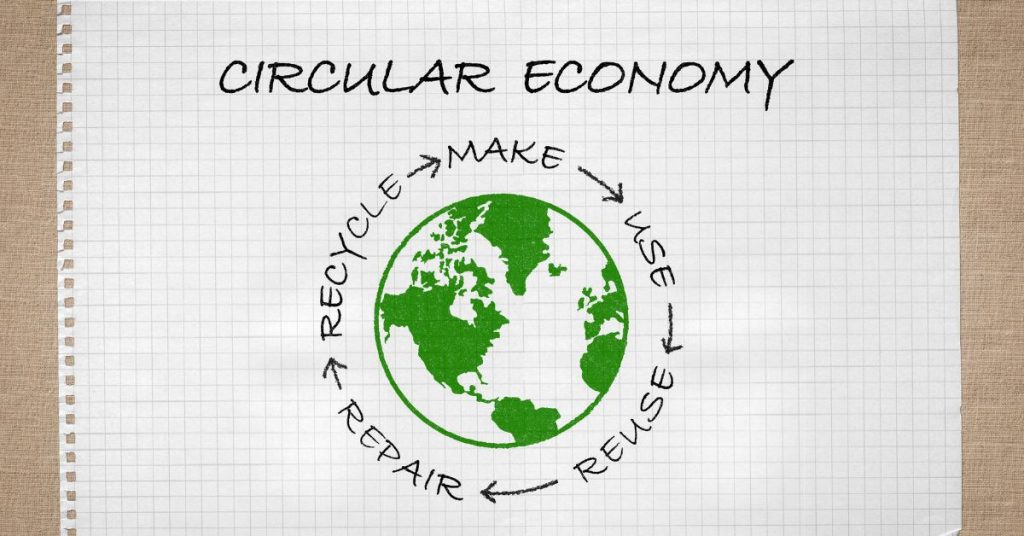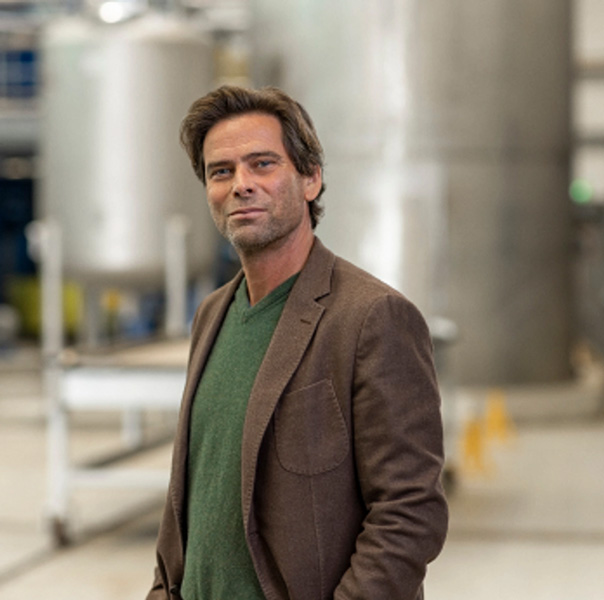Empowering Sustainability: A Journey into Circular Economy Principles
In this interview, we talk to Eric Logtens whose educational journey in holistic medicine and ergonomics led to a fruitful career. He became one of the very first entrepreneurs in the world to adopt, develop, and improve the principles of what later was called the Circular Economy. Eric also has a proven track record on how to scale companies and products which have a positive impact on our environment and society whilst proving that this can be combined with a great economic performance. Keep reading to find out more about Eric Logtens, author of Circular Economy and Behavioural Change.

Tell us about yourself!
My educational journey began with a focus on holistic medicine and specifically in ergonomics, where I delved into understanding the intricate workings of human behavior of individuals, a group of people or a mass of people. This knowledge provided me with a strong foundation for comprehending the dynamics of human decision-making, team building, archetypes, out-of-the-box thinking and the combination of intuitive yet informed decision-making.
After completing my formal education, I embarked on a career in occupational health care with the bold step to start my first company at the age of 24. This experience exposed me to the complexities of influencing behavior in a professional setting, where the well-being of individuals and their productivity were intertwined. It also allowed me to apply my expertise in a broader context. During this time, I was introduced to a design team that was pioneering the application of the Cradle2Cradle design protocol into an ergonomic office chair.
It ignited my passion for sustainability and set me on a path towards integrating sustainable practices into my personal life and work, the companies I built and the products or services we sold. I learned how to build the right culture and mindset to make them successful whilst doing the right thing — making sure their practices were circular and sustainable.
A quote you live by or favorite piece of advice:
I don’t necessarily have a motto, but I live my life so that I never have to regret the things I did not do. This is also why the goal of my line of work is to create purpose-led and impact-driven organizations which create and deliver projects that have a positive social, environmental, and economic impact through sustainable business models. I don’t believe in a project that doesn’t provide a strong economic business case. I am interested in building something that is self-sustaining. Which has a perfect license to operate, now and in the future.
What inspired you to write this book, and why do you think it’s important for entrepreneurs and businesses to adopt circular economy principles?
To me, the definition of the Circular Economy is that it is a regenerative economic system that eliminates the concept of take, make, and waste. It considers a positive ecological and societal footprint. It is a system which keeps materials in endless loops and user cycles.
For 15 years I have been advocating to treat our only cradle, planet Earth, better. That we are a part of nature. Through climate change, we are starting to see how nature puts us on hold. I see its pace increasing beyond any prediction made. It is still not too late, but I believe everyone needs to act now and needs to act fast. If a simple book can support a little bit to achieve that awareness and get people into the Do-ing mode…. I would have come to regret not writing down my experiences and sharing them. And – like I said earlier on- I do not want to regret something I didn’t do…
In general, you cannot maintain a company which only extracts from the world, as our system – Earth’s resources -is finite. I was inspired to write this book because of the urgency of a call to action; it is essential for every organization, community, and company, whether multinational or startup, to undergo a transformative paradigm shift in how we conduct our businesses.
My goal is to inspire and reach more people, sharing my learnings and the mistakes I’ve made along the way, with a practical approach and actionable steps. The book aims to help individuals leverage my expertise and experience when they are to develop a positive impact product or service. To help them make their business circular, replicable and scalable.
How can leaders, managers, and businesses balance economic performance with environmental and social impact, and what role does circular economy play in achieving this balance?
Circular Economy principles are imperative for every organization and business. Continued operation without addressing negative environmental and social impacts will result in the loss of its license to operate. It’s no longer a choice. It is crucial to strike a balance and act. Ultimately, nobody wants to be associated with a company that depletes resources daily, leading to a negative impact on future generations and the world at large.
Your educational background includes human behavioral change. How does this knowledge inform your approach to entrepreneurship and building companies with circular economy principles?
Through years of experience, we have discovered that a single application of technology or material innovation, such as product-as-a-service or material traceability, does not create a comprehensive ecosystem. Stakeholder engagement is crucial, with all stakeholders aligned and entering the process in an orderly manner. Building on these insights, we have formed three core companies.
The first is Material Innovation Center (MIC), where ideas and inventions about new, healthy materials are scaled up to manufacturing capabilities, applications in the market, and commercialization. We have learned to involve off-takers during the early stages of innovating and prototyping to drive change from within the supply chain.
